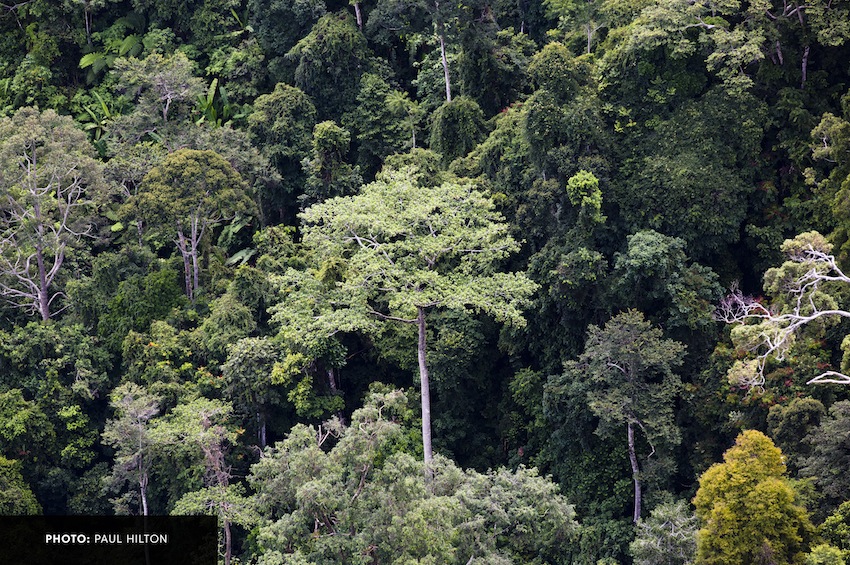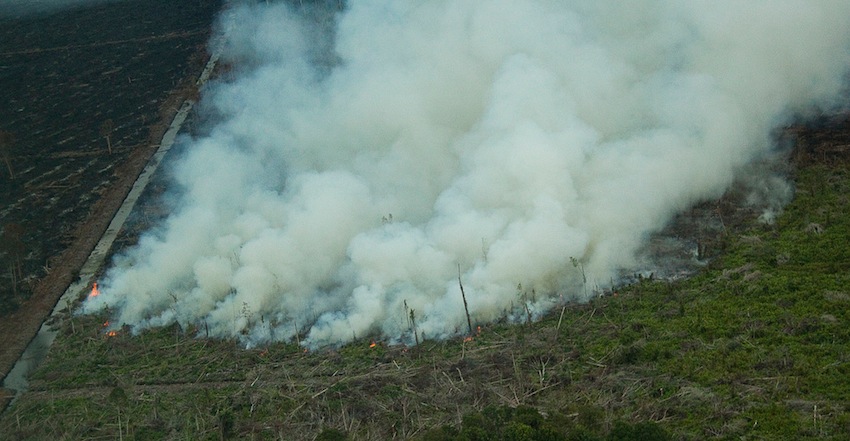In a precedent setting verdict made earlier this week, the Supreme Court of Indonesia has upheld a ruling against the notorious rainforest destroying palm oil company PT. Kallista Alam, ordering the company to pay fines totaling USD $25.6 million for illegally burning the Tripa peatland.
In a country where the destruction of rainforests for palm oil plantations is rampant and where corruption and illegal expansion is often considered business as usual, this ruling brings about long-awaited justice for the destruction of one of Indonesia’s most valuable natural resources.
The Tripa peatland is part of the 6.5 million acre Leuser Ecosystem—a globally important biodiversity hotspot located on the northern tip of the island of Sumatra. Tripa is known as the orangutan capital of the world, providing habitat for the last stands of critically endangered Sumatran orangutans, of which fewer than 6,600 individuals remain in the wild. The Tripa peatland also stores massive amounts of carbon and help to regulate our global climate.
 Aerial view of the remaining forest in the Tripa peatland.
Aerial view of the remaining forest in the Tripa peatland.
This verdict ends a five year saga that started in 2011 when the former Governor of Aceh issued PT. Kallista Alam an illegal permit to convert 17,020 acres of the Tripa peatland into a palm oil plantation. PT. Kallista Alam failed to obtain the Free, Prior and Informed Consent of the local forest-dependent communities to develop on their traditional lands. To make matters worse, the company started to clear the forests these communities depend upon for their livelihoods to make way for a palm oil plantation.
Fighting for the local communities and native wildlife that call Tripa home, a local coalition launched a public campaign to save Tripa and Walhi Aceh, a local NGO, filed a legal case against the former Governor and PT. Kallista Alam for the illegal expansion into Tripa’s forests. But once PT. Kallista Alam and other palm oil companies learned community groups were trying to stop their expansion, they rushed to burn and clear more forest, resulting in massive fires that caught international media attention.
 Fires in Tripa peatland, March 2012. Photo: Carlos Quiles
Fires in Tripa peatland, March 2012. Photo: Carlos Quiles
Since that time PT. Kallista Alam has been embroiled in legal proceedings over the illegality of their operations, including a lawsuit filed against the company by Indonesia’s central government. PT. Kallista Alam was found in breach of Indonesian national law for illegally burning forests in the Tripa peatland and ordered to hand back nearly 14,255 acres of land and to pay USD $25.6 million in fines, part of which was ordered be used for restoration of the area. PT. Kallista Alam appealed this ruling at the provincial level, which was rejected, before appealing the case at the Supreme Court.
Members of PT. Kallista Alam’s staff were also found guilty of illegally clearing peatlands in a different court case and were sentenced to time in prison. It is believed that the implementation of these sentences has been pending the appeal of the lawsuit in the Supreme Court. Now that the appeal has been rejected at the highest level, the sentences must be enforced.
This historical decision wouldn’t have been possible without the thousands of people who raised their voices, signed petitions, and took action with RAN and local communities in Aceh to protect Tripa and the Leuser Ecosystem. As we raise our voices together, we can make a difference!
While this is a huge milestone for global efforts to protect forests, a lot of work still needs to be done. PT. Kallista Alam must pay its fine, and the peatlands that were destroyed must be restored to their original condition so they can once again provide a number of crucial roles including carbon storage and climate regulation, erosion control, watershed protection, and providing habitat for endangered species and other native wildlife.
The bad news is that other areas of the Tripa peatland and the Leuser Ecosystem continue to be bulldozed every day and time is running out to save the last stands of forested peatlands in Tripa. The good news is that three of the biggest buyers of palm oil from the Leuser Ecosystem region—Musim Mas Group, Wilmar International and Golden Agri-Resources—have adopted policies that commit to halting the bulldozers in their supply chains, including in the operations of their suppliers in Tripa.
We urgently need these traders to intervene and secure the protection and restoration of Tripa. You can help save Tripa by calling on these palm oil giants to enforce a moratorium on the clearance of rainforests and peatlands in the Leuser Ecosystem today.
Banner image: Aerial view of destroyed forests in the Tripa peatlands. Photo: Paul Hilton.
